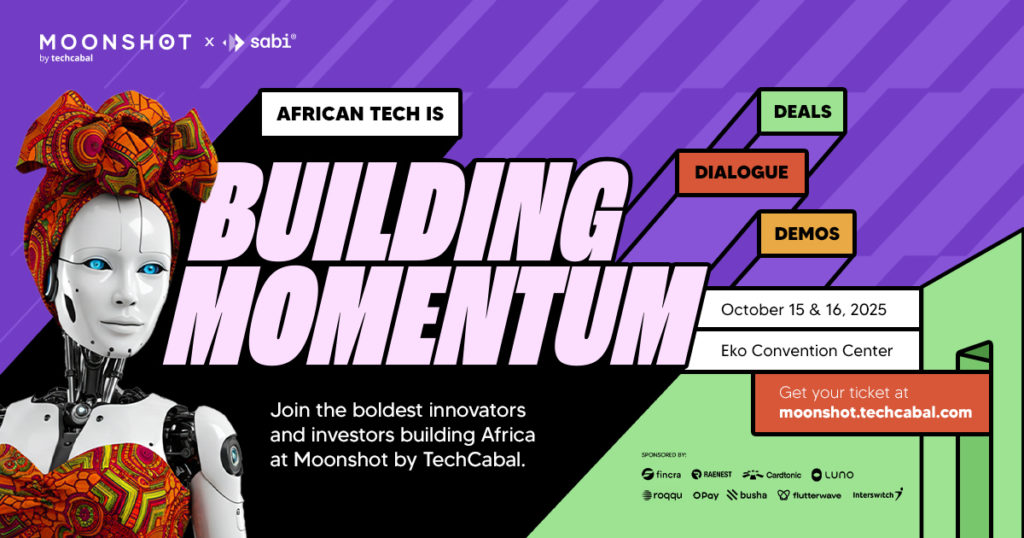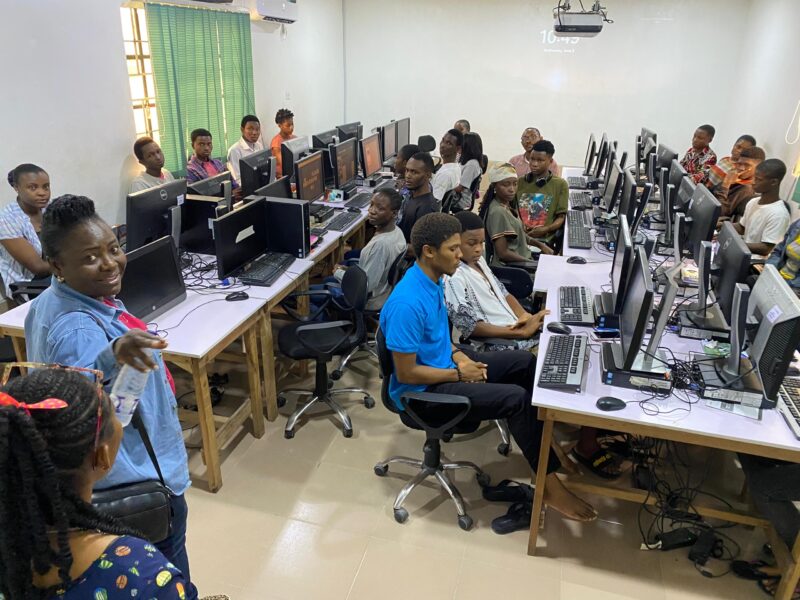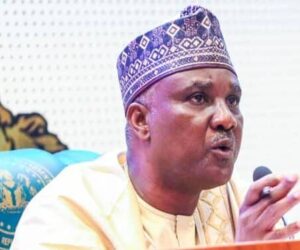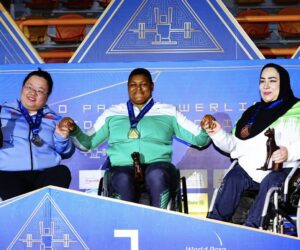Nestled off the coast of Rivers State in southern Nigeria, Bonny Island presents striking contrasts. The 215-square-kilometre island, home to nearly 300,000 people, hosts oil giants like the Nigeria LNG (NLNG) plant, which has invested over $30 billion in infrastructure alongside other oil companies on the island.
As a result, Bonny enjoys amenities like round-the-clock electricity, something that many Nigerian towns can only dream of. For decades, the island’s youth had just one clear path to success: landing a coveted job with the oil companies whose smokestacks dominate the skyline. With limited openings and fierce competition, many young people remain underemployed, waiting for opportunities that never come.
“The average young person in Bonny is always looking forward to working with the multinational companies like NLNG, Shell, now Renaissance and the others,” says Richard Pepple, founder of Technoville, a grassroots initiative building a tech ecosystem on the island. “But not everybody can work there because they can’t employ everybody. There are so many smart young people here who just need other opportunities.”
A trip that changed everything
Before 2017, Pepple’s relationship with technology was casual at best. After finishing secondary school in 2013, he met Steve, a web developer, who taught him how to code. Though he once built a simple website using WebNode, he didn’t see tech as a real career path.
That changed when Pepple travelled from Bonny to Lagos for Techpoint Inspired 2017.
During a Q&A session at the conference, an eight-year-old developer stood up and confidently asked a technical question about coding.
“I was shocked,” Pepple recalls. “I learnt how to code when I was maybe 15 or 16. How is this 8-year-old going to understand all the languages that were very difficult for me at the time?”
It wasn’t just the boy’s brilliance that struck him. It was the realisation that followed: “In Bonny, we have 24-hour uninterrupted power supply and almost every teenager I know has a smartphone. So what are we doing? I don’t know any 10- or 15-year-old person in Bonny who is coding or building something with technology.”
Starting small, dreaming big
When Pepple returned to Bonny, he was inspired but unsure where to start. He decided to begin small. He approached the island’s Youth Research Centre, which provided library services and had a computer lab, and volunteered to teach coding classes. They accepted.
Between 2017 and 2018, Pepple taught coding there, motivated by the image of that young Lagos developer and a burning question about why Bonny couldn’t produce its own tech prodigies. But he soon realised training a handful of people wasn’t enough.
“I thought, what if we organise a conference like the one I attended in Lagos, but here in Bonny?”
From vision to Technoville
In 2018, Pepple gathered four friends in a small room and pitched an idea: a movement to put Bonny Island on Nigeria’s tech map. Guided by Andela’s mantra, “Brilliance is evenly distributed, opportunity is not,” they launched Technoville, determined to create those missing opportunities for Bonny’s youth.
“That was the beginning of Technoville,” he recalls. “Finding out that there’s a problem for us to solve and everybody agreeing that it’s one worthy of solving.”
Today, Technoville operates multiple programmes designed to build a comprehensive tech ecosystem. The flagship Bonny Digital Literacy Initiative trains 100 young people annually. The Technoville Road Show visits secondary schools across the island, establishing sustainable tech clubs and inspiring students through mini-conferences. Since 2023, they’ve reached 15 schools, with plans to expand to Port Harcourt. Each November, the organisation hosts the Evolve Technology Summit, now in its sixth year, bringing together industry experts and showcasing local innovation. Beyond training, Technoville builds software solutions for clients and runs paid specialised courses.
“We wanted to change the narrative that Bonny is only known for oil and gas,” Pepple explains. “We wanted Bonny to also be a technology destination.”
Scaling up with NLNG
For its first four years, Technoville relied on personal funding from the founders. Growth was slow, and many students didn’t own computers, making it difficult to scale.
The breakthrough came in 2022, when Pepple shared Technoville’s vision with a senior NLNG official. NLNG, already a major driver of Bonny’s community development, saw the programme as a perfect fit for its goal of empowering local youth.
The flagship programme trains 100 young people annually taking them through a six-month curriculum covering basic computer literacy, product design, web development, data analysis, and robotics.
“We assume you don’t even know what a computer is,” Pepple explains their teaching approach. “We let them take all these courses because I’ve seen people start with product design and later transition to web development. We don’t want you wasting your time. We want you to get a blend and then make up your mind.”
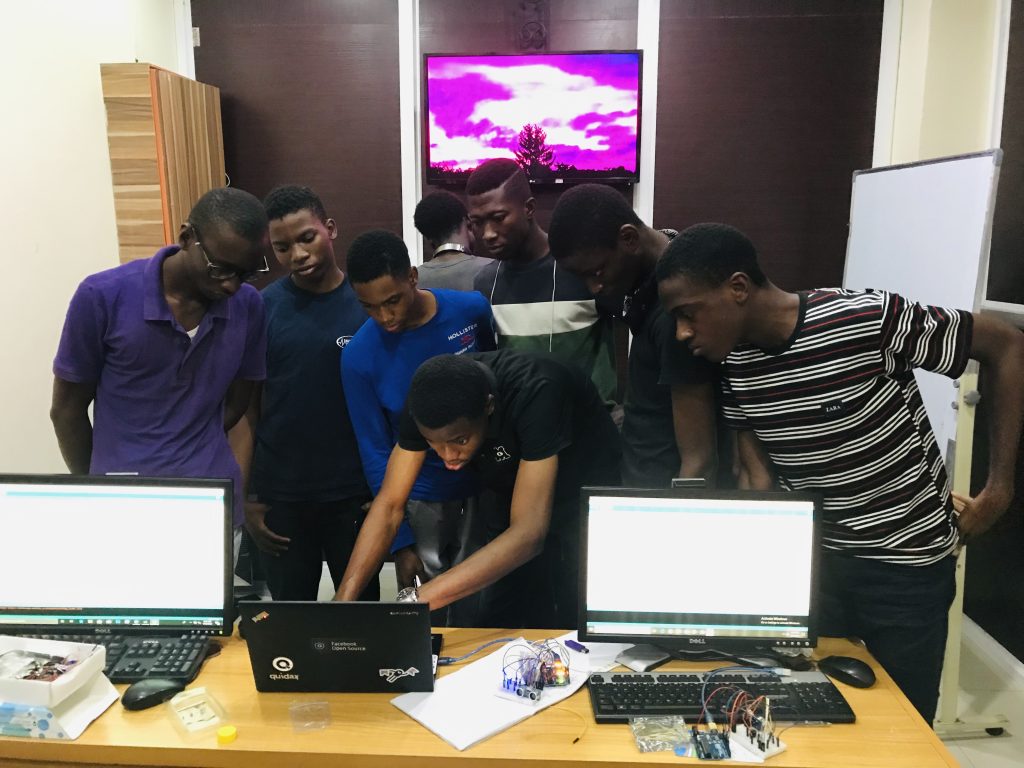
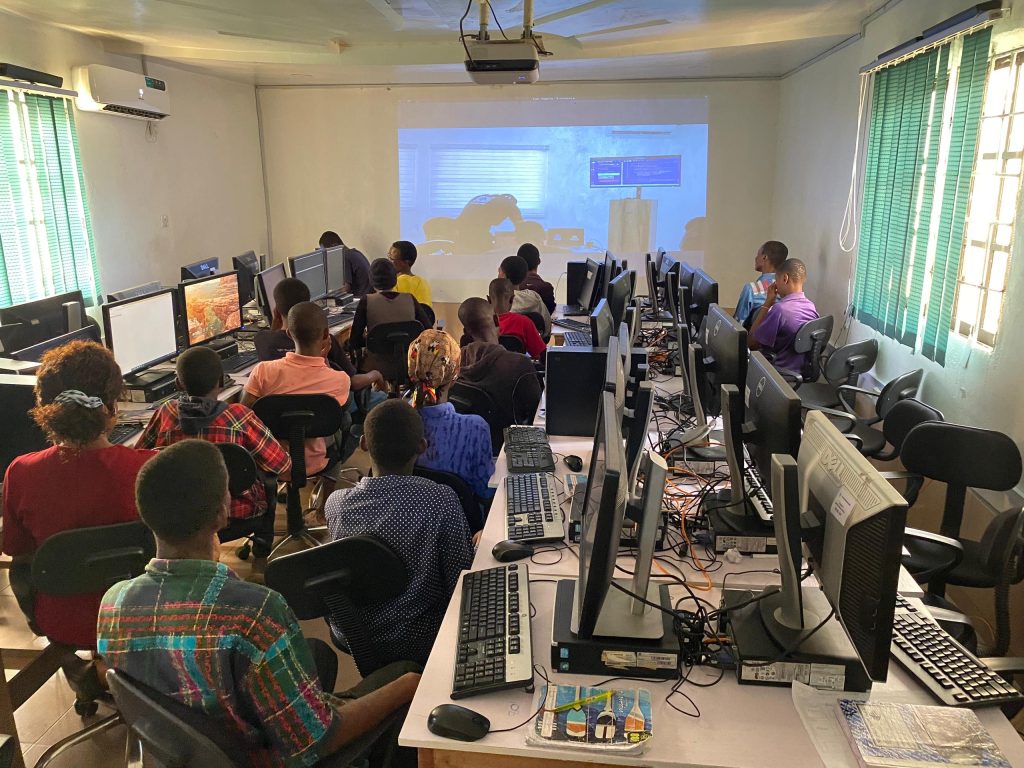
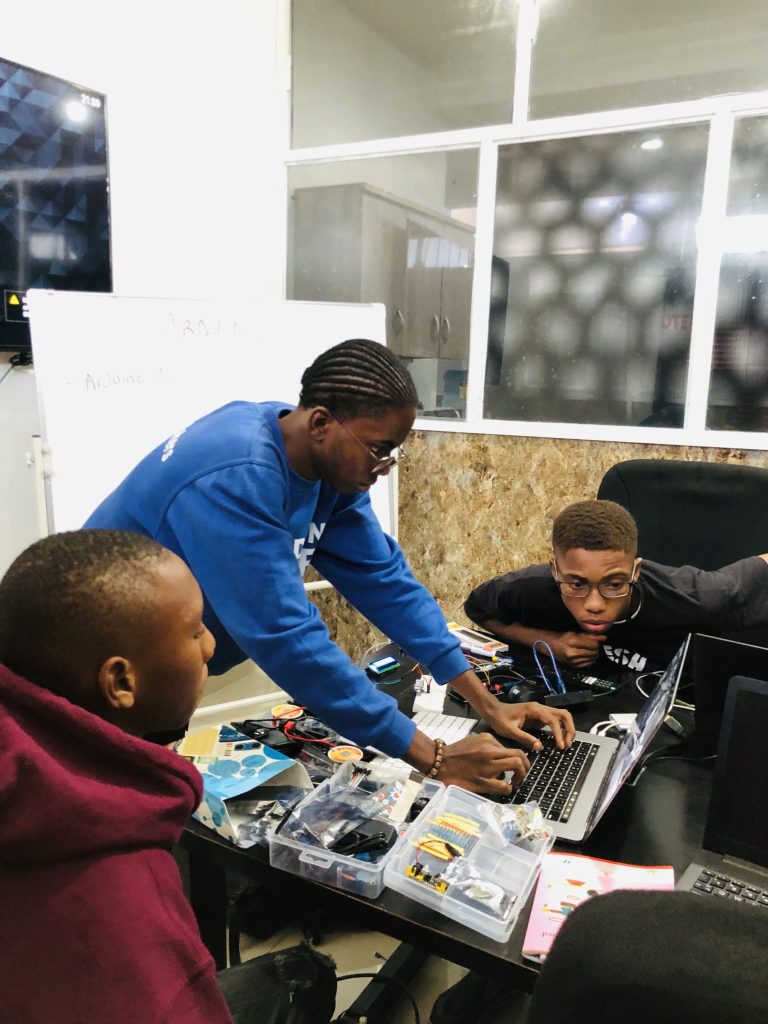
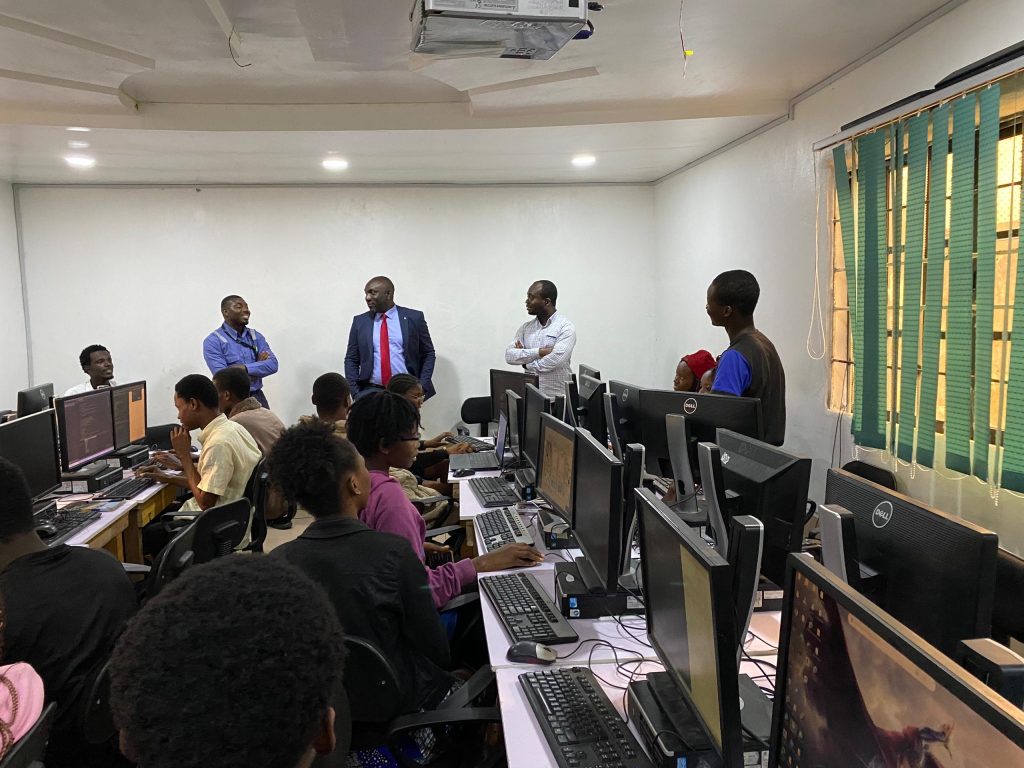
Image Source: Technoville
So far, 300 young people have graduated from the initiative since it launched fully in 2023.
“We’ve seen incredible success stories from this,” Pepple says. “Some are freelancing whilst still in school, others are working with organisations, and some are already building their own solutions.”
Success stories beyond the Island
Since its launch, Technoville has trained more than 1,000 young people who are now building startups, working for companies, freelancing, and some even interning with Technoville to help train others and build solutions for clients.
The most celebrated example is Reforest AI, an artificial intelligence platform built by student Lesley Jombo and his friends Blessed Pepple and Bright Sunday to track deforestation patterns. The project recently secured funding from the National Geographic Society.
“The guys are really doing pretty well,” Pepple says. “They just got their funds, and what they are doing now is trying to scale the application to ensure that there are multiple use cases.”
Other graduates are building startups. Joseph Long John, who joined the programme in 2023, is developing an edtech startup with his university friends. Another graduate, Kadiri, is creating a platform aimed at connecting students within his university faculty. These ventures may not be funded yet, but Pepple says they reflect a budding culture of collaboration and innovation amongst young people in Bonny.
Getting more women in tech
When Technoville began, most participants were male. But by the fifth cohort, women outnumbered men.
“For ladies, you have to be very deliberate about it,” Pepple explains. “In Bonny, some people still think women should not be involved in certain kinds of jobs.”
Their approach includes monitoring registration, personally encouraging young women to apply by showcasing role models like Ada Nduka of SheCode Africa, and prioritising visits to all-girls schools. One graduate started her own tech community at university because, as Pepple puts it, “she felt like the other ones are playing.”
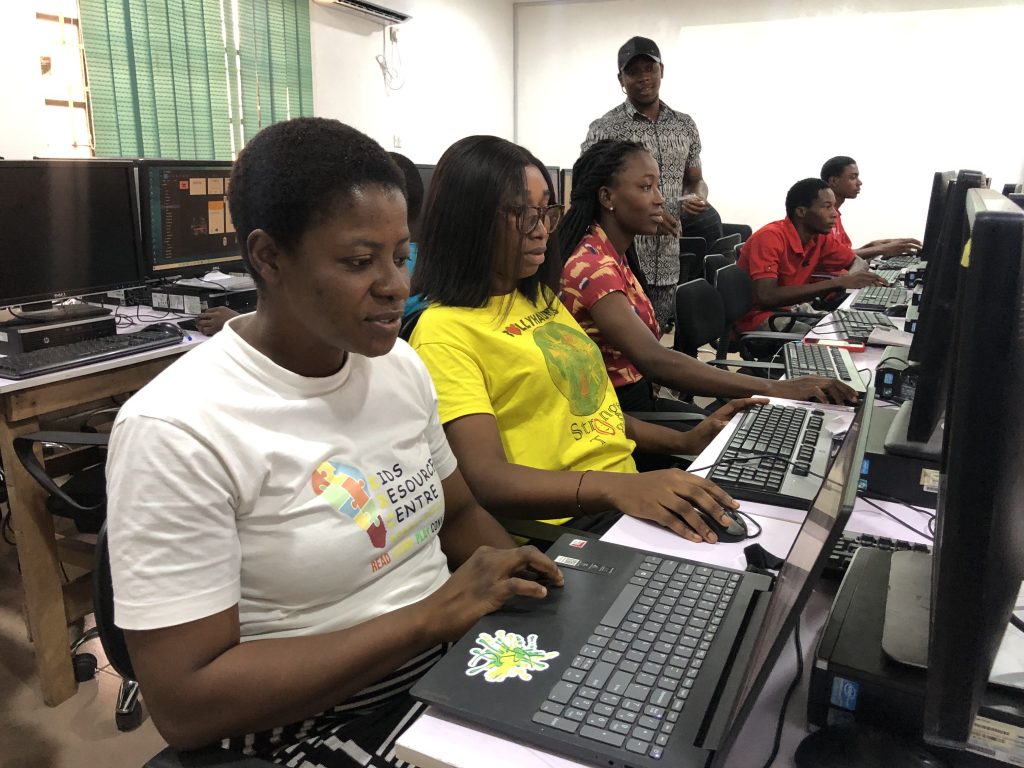
Image Source: Technoville
More than training
What sets Technoville apart is Pepple’s hands-on mentorship. He personally checks in with alumni and provides outside support.
“I take my time to call these guys to check up on them, to know what they’re doing,” he says. “It helps us support them even outside the classroom.”
This includes practical interventions like providing laptops to promising students who can’t afford one.
“We’ve given out laptops to people just to get them started,” Pepple explains. “If you’re not doing what it is we trained you for, it’s as though we failed. And the last thing I want to do is to fail in training somebody.”
Scaling from the margins
Running a tech organisation outside Nigeria’s major tech centres comes with unique hurdles.
“Funding is really difficult, especially when you’re doing something in Bonny,” Pepple admits. “When you tell people you’re doing something here, some don’t even know Bonny exists on the map.”
Support has been sporadic. A hackathon in 2021 attracted backing from Techwealth Innovation Foundation, whilst the NLNG partnership followed in 2022. They have also worked with the European Union. But resources remain scarce.
“We opened a hub last year because so many people who want to learn don’t have computers,” Pepple says. “But with limited funding, we can’t purchase computers for everybody.”
The costs of sustaining their school programmes are substantial. Sponsoring a single school costs around ₦200,000, about $133 monthly,, just to keep the tech club functional, excluding the mini-conferences they hold.
To stay afloat, Technoville has diversified, running paid training programmes, building solutions for clients, and constantly seeking new partnerships.
“I’m always travelling,” Pepple says. “Because I need to pitch what we’re doing and find people who believe in our vision.”
Sorry, oil, tech is coming
Eight years after that moment at Techpoint Inspired, Bonny Island is still primarily known for oil and gas. But in classrooms and tech hubs, a gradual revolution is underway. A generation is learning to code, building startups, and imagining careers beyond the rigs.
There are signs the shift isn’t just local to Bonny. Nationwide, tech is beginning to outpace oil in terms of GDP contribution. Recently, Minister of Communications, Innovation and Digital Economy, Bosun Tijani said the sector now contributes between 16–18% of GDP and is projected to become Nigeria’s top revenue earner by 2027, with a target of 21% GDP share.
What this really means is that Bonny’s push isn’t isolated. It is part of a national shift where tech is moving from the margins into the centre of Nigeria’s economy. The future Bonny is chasing is already being written at the national level.
Somewhere in Lagos, the eight-year-old developer whose question sparked this journey may never know what he set in motion. But on Bonny Island, that spark has grown into a movement. “We want the world to know Bonny not just for oil, but for technology,” Pepple says. If the island has its way, Nigeria’s next big innovation story might just begin here.
Mark your calendars! Moonshot by TechCabal is back in Lagos on October 15–16! Meet and learn from Africa’s top founders, creatives & tech leaders for 2 days of keynotes, mixers & future-forward ideas. Get your tickets now: moonshot.techcabal.com
